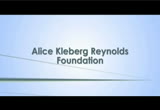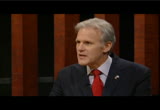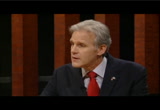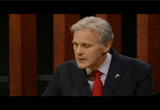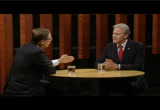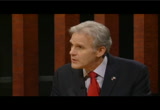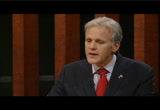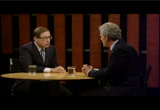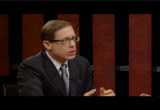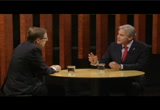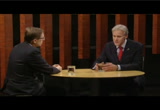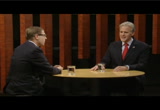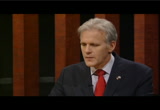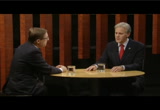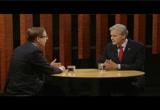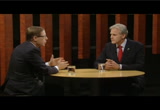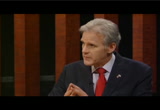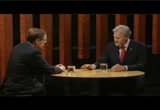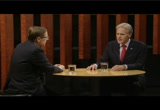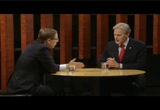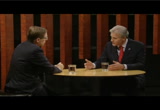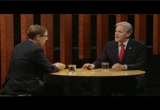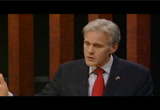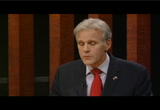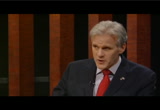tv Overheard With Evan Smith WHUT February 19, 2013 8:30am-9:00am EST
8:30 am
funding for overheard with evan smith is provided in part by the mattson mchale foundation, in support of public television, also by mfi foundation, improving the quality of life within our community, and from the texas board of legal specialization, board certified attorneys in your community. experienced, respected and tested. also, by hilco partners, texas government affairs consultancy, and its global health care consulting business unit, hilco health. and by the alice kleberg reynolds foundation and viewers like you. thank you! i'm evan smith. he's an american-born historian and best-selling author israel's
8:31 am
top diplomat. he's ambassador michael oran. this is overheard. >> we have 15 million kids in our country who grow up below the poverty line. >> most americans want the same thing. they want a good job. >> i realized there weren't a lot of people writing things in my voice, so i realized i had to do it for myself. >> and i love you because. >> we're a better country than we used to do, but we have more to do and we need to get at it. >> i will do that when i wanted to get that buzz you get for working at the absolute top dollar. >> mr. ambassador, welcome. >> good to be here, evan. >> thank you very much, sir. can you tell us what's going in syria? obviously a lot of these this week as we sit here. would you share with us the latest, please? >> widespread violence, 60,000 people killed. vicious regime -- regime is holding out, actually making gains in some places in the country. we are particularly concerned by the control or lack of control
8:32 am
of the syrian chemical weapons arsenal, which is the largest arsenal of its type in the world. and we're in close communication with the united states about that situation. the united states is in touch with other regional actors who share our concerns about the chemical weapons in syria's arsem. >> ma motivated israel to act this week? >> i can't comment on that. but i will tell you that we are keeping a close watch on the situation in syria. >> right. let me ask a broader question. why is israel considered the business of other country like israel knob its national interest? >> syria is next door to us. and syria has declared itself in a state of war with us. syria has waged several times war against the state of israel. >> right. >> we have a common border there. it's a long border. it's been quiet pretty much since the 1972 yom kippur war. we want to maintain that quiet and there have been some shootings across the border. most of that is spillover. there are some syrian population
8:33 am
centers along the border and fighting in those cities. there's some motorarts, some bullels across the boarder. it hasn't been aimed at us. but we have to be concerned there. for a long time before the outbreak of hostilities in syria, before the outbreak of the sig war, we have concluned that bashad and his regime was too costly, too prohibitive for mild middle east security in general. that's been an important ally with iran. it has provided 70,000 rockets to hezbollah. they tried to make a secret nuclear military facility which thankfully doesn't exist anymore. his father was ruthless. but somehow he was ruthless in sort of responsible, predictable. his son bashar is ruthless and reckless. and nobody in the middle east can afford him. >> this is as much about syria's pose visa ve israel as it is --
8:34 am
veesa ve israel -- >> they're also very concerned about the regime, its relationship with iran. >> yet it's israel that's acted in this most recent case as opposed to turkey or jordan? >> can't comment on that. >> i understand. let me ask you generally from an american perspective the middle east is such a difficult situation to resolve. you know, for years and years and years, we hear how hard the middle east is, the peace process isn't going anywhere, the countries are constantly in conflict. not just israel but the region is so thorny and hard for americans to understand. can you shed a light on why it's so difficult to -- >> how much time do we have? >> i did write -- >> take as much as you want. >> i wrote an 800-page book about this. it goes back to 1776. >> for someone in this country who cares about the world and wants to understand why this has been so difficult, what would you say? >> let's look at why the middle east is important. it's the nexus of continents. its strategic importance is unassailable.
8:35 am
>> right. >> direct link between africa, asia. it has immense resources including resources which is as yet irreplaceable, oil. it is an area of immense and intense religious feelings. just take the state of israel alone. state of israel, the land is holy to more than half of mu hant. you can't say that about texas. a wonderful place but i don't know if it's holy for more than half of humanity. >> it's holy to a lot of people, not exactly the same thing. >> there's tremendous religious tensions there, too. we're invested and passion as well. all that combines with a region that for much of it has not been based on a state -- a nation state or the state's coexisting. many of the states in the middle east were create by the europeans about 100 years ago and they through borders that somehow fulfilled the interest of europeans but didn't relate to the interest of the people who were there, so it crossed ethnic lines, crossed right
8:36 am
lines. that's what you're seeing in syria, in iraq as well. and all of that has contributed to instability throughout the region. it's a very different culture than the west. and if i can, i refer to my book, i'm an ambassador, so i can't hawk my own book. >> you're note selling books. >> they are available on amazon at famously reduced prices, but there was a great line by an american traveler to the middle east in 1872 former civil war general, gorm mcclellan, one time head of the forces of the union and he had this -- to my mind, one of the great observations, that as long as americans didn't view the middle easterners, the people in the middle east as a different culture with their only political value systems, then americans would be doomed to misunderstand the middle east. he said this in 8 steven 2. >> and we're still working on it. >> and it's a huge challenge. >> the instability has been helped or hurt by the americans'
8:37 am
activities in afghanistan and iraq over the last decade. >> well, i think the american intervention in iraq -- i don't know about afc. i'm putting that outside the middle eastern area, has created a situation where the middle east peoples have been given abchoice, having a functioning democratic government of having ethnicities, ethic groups couldn'ting on a federal basis -- cooperating on a federal basis or not. it's an experiment. i think -- i'm not the ambassador of the united states. i'm not going to speak for any american administration. but i do think that the american intervention in iraq gave the people of iraq a certain opportunity, whether they're going to take that opportunity and use it for the betterment for the country is up to them now. >> there's no question that saddam hussein's departure from his position and leadership in iraq has been beneficial to iraq, but the question is whether the current leadership situation in iraq is sustainable going moderate with the americans reducing their involvement in their presence. >> i think it's a ge that's up
8:38 am
to the iraqis. >> to the israels have a point of view? is there an official point of view that israel has with regard to america's involvement in iraq? >> no, but we do hope that a peace loving and democratic government persists in iraq, that it adheres and that it enters into a peace process with us. we have no animosity, toward the iraqi people. we'd like to have peace with them. a great number of people, citizens of my own state of israel, came from iraq. they were forced to leave back in the early 1950s and we'd like to have peace with the iraqi people. >> where do you think america's alignment with israel is right know? along a continuum? a lot of talk about what the historic relationship of the united states israel has been, much controversy over whether we're adequately supportive of israel in some of these fights that have broken out. as we sit here today, chuck hagel, the former senator from nebraska s in the middle of
8:39 am
confirmation hearings and a flash point in the haagle here's is is he supportive -- hagel is is he supportive of israel. questions during the campaign by governor romney, is president obama adequately supportive of israel. can you characterize the relationship as you see it from your perspective? >> let me first talk about the relationship between the people of israel and the united states. we're talking about a relationship which has very deep root. it goes back many ways to the beginning of the puritan experience in this country 400 years ago. pure tans thought of themselves as the new israel. this was the new promised land. they had a strong connection do the old israel, the jews, strong connection to the land of israel. so the idea of america was almost indistinguishable from the idea of re-creating a jewish state in the land of israel. you can find founding fathers, is this lincoln, harretruman, all supported this idea of a re-created jewish state. deep spiritual move. there was the common democratic values. israel is not is jewish state, a democratic state. one of the few countries along
8:40 am
with the united states and the world that has never known a second of nondemocratic rum. very small group of countries, and we have a strategic alliance, which ismulti-faceted. israel the only country in the middle east which is stable, strong militarily. democratic, and unegivebly, un abashedly proamerican. no demonstrations, no american flags in the streets of tel aviv being waved there. support for israel in this country is that a near all -- is at a near all time high. close to three-quarters of americans define themselves as israel or pro israel. during the last four years the obama administration, that relationship has grown. >> enthuse eye it's strengthened. i think -- you think it's strengthened? >> edward barack said it's stronger than anytime. i can tell you i've worked with two secretaries of defense, and i've watched that relationship grow and become increasingly
8:41 am
strong over the course of the last four years. our intelligence relationship is unrivaled any when in the world and i have reason to assume that's going to continue in the years to come. there's no substitute for israel, there's no substitute for the united states as an ally but also for the -- >> you say that the relationship between israel and the united states has strengthened in the last four years. nonetheless our presidential campaign that there were some beliefs that mr. netanyahu and other officials of the government would have preferred governor romney to win than president obama? >> and other things say all sorts of things. >> that's not true? >> i'm telling you that bipartisan party in this country -- support is one of the truly bipartisan issues in washington. there aren't that many, but this one is. >> not many left. >> this one is, it's supreme national importance to the state of israel. and we worked to preserve it. i have -- prime minister netanyahu has been in nine meetings with president obama. i've been present at all of them. i can tell you those meetings
8:42 am
are friendly, candid, open. >> right. >> and president obama has said that he has spent more time speaking with prime minister netanyahu than any foreign leader, including this week, they spoke for about an hour. it's a very close relationship. we've had our disagreements. >> right. >> we've had disagreements. but the lit must is mot whether there are -- litmus is not whether there are disagreements. whether you move beyond them on to the peace process and the iranian nuclear programs and the efforts to stop it. you don't see very much difference between us today. >> so the state of israel institutionally and prime minister netanyahu personally take the position that the u.s.'s position on, to be specific, iran, with regard to iran's weapons program, nuclear program, potential nuclear program, you're satisfied that we're doing what we ought to be doing and we're doing enough of it? >> the president has said time and again that he's determined to prevent iran from acquiring nuclear weapons. we sign on to that 100%. the president has led an international effort of imposing crushing sanctions on iran which
8:43 am
have proved very effective on delivering a blow to the iranian economy. the president said that containment is not an option but all other options remain on the table. we sign on to that, too. and we have a very close and ongoing dialogue with the administration about ways that we can realize the goals of the president himself has set. president obama has said that if israel was completely unsolved in the iranian issue it would still be -- a not a moral concern. he said a paramount strategic threat to the united states. >> so the comments made to the campaign where there was a concern of a bright line, the fact that the president was not able to meet with mr. netanyahu in new york. there was some friction back then, all forgiven, all done, move on. >> you haven't heard about it in a long time. i think when prime minister net in the got up in front of the general assembly in september, you'll remember the ball with the red -- >> i do. >> he said something that was perhaps obscured by the drawing. he said, it's not important when iran gets the bomb or even when iron decides it wants to get a
8:44 am
bomb. the most important question is when can we no no longer prevent iran from getting a bomb. this program is going to go underground -- >> it will be too late. >> it will be too late. i think there's a would it understanding between us and the united states that that is a serious problem, that at some point we'll no longer be able to know and we may wake up to a very different and very dangerous middle east. >> with regard to secretary designate hagel -- i don't know if that's the appropriate way to think of him, the nominee, senator hagel, is there an official position? as you know, you hear this stuff. you're living in this country representing israel's interests. you know that the fans and friends of israel have expressed some concern, not everybody, some concern about whether senator hagel would be secretary hagel adequately supportive of israel militarily. >> we're not going to interfere in an internal american nomination and presidential -- >> everyone else seems to. >> we're a foreign country. they're citizens of the united states. that is their right to do that.
8:45 am
what we have said is that, first of all, we will respect the nominationses of the president and the confirmation of the congress for senior administration officials. and that -- and i have said it. i've talked about our security relationship. others like ed barbara wrack have talked about the excellence of the security relationship. we believe that will continue and will strengthen. and that policy is made in the white house. and it will remain made in the white house. >> in the white house. let me move away from the relationship of israel and the united states to ask you about being a diplomat. a lot of discussion in this country about the death of stevens in benghazi and i think it shines the light on the peril of being a person in a difficult situation representing your country somewhere else. is your life generally speaking in any way more complicated than you imagined it would be when you first took this post? i mean, it seems -- it seems that being an ambassador is not just, you know, fancy dinners
8:46 am
and, you know -- >> it's not? >> traveling. >> now you're telling me! >> i want to understand better. i mean, obviously the ambassador -- the situation with ambassador stevens' end to his of his life is tragedyi. not every diplomat is at the that level of risk, but surely we don't have a true enough understanding of what it's like to be a diplomat in another country representing your country's interests. >> there are security concerns. you know, i won't -- there are security concerns. you remember about two years ago there was a plot to kill my saudi counterpart. >> i do. in a restaurant in washington. >> cafe milano. at the same time, that same plot was to blow up my embassy. we didn't make a big deal of it at the time. but that raised serious security concerns and we had to act accordingly and there are times when we do have to make adjustments. and we're aware -- getting used -- as any official certainly elected officials, senior elected officials in this country have security details, you learn to deal with them and not being alone. and it was a challenge.
8:47 am
but after a while you stop thinking about it and believe me, our major concern is not physical safety. i have a job to do here. i have a fabulous job. i have a great privilege to represent the land of my birth, the land of my forefathers, because there's -- >> which will come to you. >> and every day i basically pinch myself that i have this honor and this pillage to do this. >> how did you get to be the ambassador representing israel and the united states? you are american born, let's get to that. can you tell the story of how you got from here to there and became the person who got from there to here? >> briefly. okay. i was born upstate new york, raised in new jersey. >> educated in this country? >> educated in this country, yeah. and i had grown up all the the sense i wanted to live in israel. that was extremely important to me. >> religious family growing up? >> nome, no, not particularly religious, but a strong sense of
8:48 am
zionest commitment. early age. i was a cowboy. you like that in -- in texas. i rode horses, rustled cattle up, and used to refer my as oy rogers. >> oy rogers. you've told that joke before. >> not on national television, no. [laughter] >> good. >> i'll never live it duwn. but i learned to ride. and to me it was just -- it was -- i couldn't believe i was of my -- my good fortune to be live at a time in jewish history where it was a sovereign proud jewish state and i want to be a part of it. so i went there, served in the armed forces and in the reserves for many years. >> did you see action? >> oh, yeah. >> can you talk about that? >> i have been in three, four wars. and until recently, i was in the 2006 lebanon war, the 2008-2009 gaza operation. but i started as a paratrooper and i was a paratrooper until i
8:49 am
reached an age where i could no longer be thrown out of an airplane. and then i was in the army suppose office. but always in the front. and it was a great privilege to be in the army and my kid has been in the army. i have a younger son as an infantry officer. >> but service in the israel army is different. >> no saluting, no marching. you call all the officers by the first name, including the generals. and when -- i've now spoken at the naval academy. at west point. and i spent -- every time i tell cadets or midshipmen, that we don't salute, we don't march. >> the informality of it. >> the general is ari and not sir. >> wow. >> so they find that unusual. but it's a -- different army but it's a very effective army. >> so from suffer there -- >> and then i came back. my whole field was in modern middle eastern studies. i'm just come from the lyndon baines johnson library -- >> research on your book. >> it's good to be back.
8:50 am
so my focus as an academic was on the history of american involvement in the middle east and the u.s./israel relationship. and prime minister netanyahu had -- even in the opposition had occasionally called on me to get insights on what was happening in america and conversely, i briefed the white house and i was -- i had done some speaking in congress on issues, ranging from iraq to the peace process. and i became to be more involved in the pression, speaking on tv, television and writing opads. so when prime minister net was elected now, it was his second term, now he's coming into the third term. and there was a new administration in washington. they wanted someone who understood israel well, understood america well, who could interpret america for israel, israel for america. chose me. >> the prime minister was no stranger to this country himself. he has spent much of his childhood here. >> right. >> and growing up in philadelphia. >> he probably has more knowledge, firsthand knowledge
8:51 am
of this country, its customs and culture and politics maybe than any previous in israel. >> he can it in english. that's how good he is. he went to m.i.t. and understands american -- he served as the second in command in washington, called the dcm, deputy ambassador and the ambassador at the u.n. >> you mentioned the elections that occurred in israel. it's kind of a close election. it was a squeaker, wasn't it? >> not for the primetime. >> no, but the division of power and the parties. >> there was a strong misconception in this country that the election was going to go one way, the radical right. they weren't looking at the whole spectrum of polls. >> so the result wasn't a surprise. the expectations were wrong? >> i thought -- i personally thought -- >> the news reported the expectations a certain way and they pronounced the results kind of a surprise. >> i think the press was surprised. we weren't surprise as the
8:52 am
embassy. the polls were showing the -- a type of polarization, not so different from american polarization. >> i hope better than our -- >> we have a coalition form of government. we have to get together in order to form a coalition. we clearly don't -- >> we clearly don't. >> we have to get together in order to pass a budget. >> we clearly don't. >> i am so much not going there. [laughter] >> but what was interesting here is israel has the fastest growing population in the industrialized world. america and israel both together are the only to can trun i that have growing populations. israelis like getting married, having kids. religious, secular, we're a family country. and the country is growing very fast. there's a large segment of the population under 30 and they've had two major transformative experiences since 2000. one was terror. we made two offers of peace to
8:53 am
the palestinians. they turned it down. we withthrough from southern lebanon, from gaza in order to advance peace. we got rockets and suicide bombers. that's had a profound impact on israel. the other great transformative experience has been israel's emergence from being a largely small, largely socialist poor country, to a very quickly advancing economically and technological country. becoming a high-tech giant in the world. and that has created divisions in israeli society that didn't exist before. when i first moved theresh basically earned the same thing and had -- there, everybody basically earned the same thing, and had the same tv channels. >> very different country now. >> there are questions not so different that plague the united states. can you make a living in the middle class, can you find affordable housing. so that has had a big impact. and those two experiences very
8:54 am
much sound expression in the election, where you had one party that was more to the right, that was reflectively of the trauma of terror and the disappointments of peace, and another party which was more centrist which was reflecting the interest of the middle-class and young people were having a hard time getting by. and if you'd looked at the polls before, you wouldn't have been so surprised. >> what is the message, as we end here, what is the message of that division in terms of how israel now needs to regard itself and how we should regard israel going forward? >> i think that, first of all, know that the election had a high turnout, one of the highest in our history. >> you're doing better at that than we are. >> 80s very impressive for a country who's never known a second democratic rule. that's one of our greatest achievements. the prime minister is actually -- a lot of talk about him being weaned, but -- weakened, but he didn't have the highest amount of seats. now he not only has the highest. he's 12 seats higher than the guy after him. he's in a good position to put
8:55 am
together a wide and very representative coalition. which will put israel in a good state, good position if it has to do what's called diplomacy heavy lifting, whether on the peace process or some of the regional challenges, the iranian nuclear program. >> we begin where we began with a tough situation. israel is going to try to figure out what to do with it and look to us for help where we can. >> we have an historical alliance with the united states. israel has a duty to defend itself and we can. we've been through this tough things in our history, but look where we are now. >> mr. ambassador, thank you so much for spending time with us. helpful to know you and honor to meet you. thank you very much. [applause] >> we'd love to have you join us in the studio. visit our website to find invitations to interviews, q & as with our audience guests, and an archive of past episodes. >> in america, when you go to the polls, you elect basically a quarterback and a linebacker or
8:56 am
two. when you go to the polls in light rail, you elect the entire team. and a couple of the special teams as well. and they have to put together that combination, who's going to be linebacker, who's going to be fullback, who's going to be a center. >> funding for overheard with evan smith is provided in part by the mattson mchale foundation, in support of you public television, also by mfi foundation, improving the quality of life within our community, and from the texas board of legal specialization, board certified attorneys in your community, experienced, respected and tested. also, by hilco partners, texas government affairs consultancy, and its global health care consulting business unit, hilco health. and by the
48 Views
IN COLLECTIONS
WHUT (Howard University Television) Television Archive
Television Archive  Television Archive News Search Service
Television Archive News Search Service 
Uploaded by TV Archive on

 Live Music Archive
Live Music Archive Librivox Free Audio
Librivox Free Audio Metropolitan Museum
Metropolitan Museum Cleveland Museum of Art
Cleveland Museum of Art Internet Arcade
Internet Arcade Console Living Room
Console Living Room Books to Borrow
Books to Borrow Open Library
Open Library TV News
TV News Understanding 9/11
Understanding 9/11
